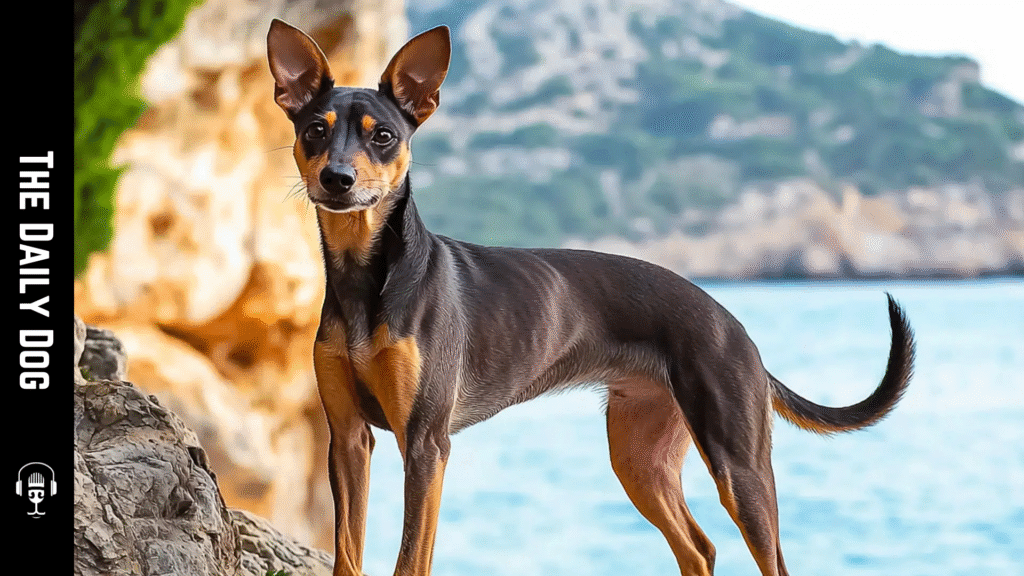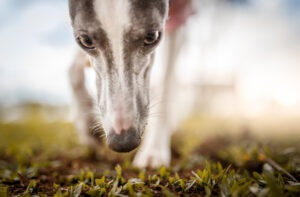When people think of Spain’s rich canine landscape, the Mallorca Ratter often doesn’t receive the spotlight it deserves. Yet this agile, intelligent breed has a long-standing reputation for versatility, reliability, and affectionate companionship. As more families seek a dog that can thrive in active households, the Mallorca Ratter rises to the occasion, blending old-world charm with modern temperaments. This article explores the breed’s origins, characteristics, temperament, care needs, training considerations, and why it might be the ideal addition to the right home.
Origins and breed identity
The Mallorca Ratter traces its lineage to the Balearic Islands, where centuries of agricultural life and island terrain shaped a dog adept at vermin control, alert guarding, and swift, precise work. The breed embodies a blend of small-to-medium frame, lean muscle, and a tenacious spirit. Over generations, selective breeding emphasized not only physical stamina and agility but also a balanced disposition that suits families, singles, and active retirees alike. Today’s Mallorca Ratter is celebrated for its alertness, independence, and affectionate nature with those it considers part of its pack.
Physical characteristics and presence
The breed typically presents a compact, athletic silhouette, with a graceful gait that hints at its speed and endurance. Coat texture can vary, but many Mallorca Ratter dogs display a short to medium-length coat that is weather-resistant and relatively low-maintenance. The color palette ranges from warm fawn and brindle tones to darker markings, often with a crisp, expressive face and bright, intelligent eyes. What sets the Mallorca Ratter apart is not just its looks but its poised presence: a dog that carries itself with quiet confidence, ready to spring into action when needed and settle into a comforting, affectionate role at home.
Temperament: a thoughtful balance of energy and affection
One of the Mallorca Ratter’s standout traits is its adaptable temperament. These dogs are typically lively and athletic, eager for interactive play, scent-work sessions, or long outdoor excursions. Yet they also demonstrate remarkable gentleness and sensitivity with family members, especially children, when raised in a stable, caring environment. The breed tends to form strong bonds with close family and can be reserved or aloof with unfamiliar people at first, particularly in new settings. Early socialization and consistent, positive training help cultivate a confident, well-mannered adult dog who can thrive in diverse environments, from bustling urban apartments to expansive country homes.
Intelligence and trainability
The Mallorca Ratter is intelligent, quick to learn, and sometimes boldly independent. This combination can be a boon for owners who enjoy engaged training and mental challenges. They respond well to varied activities that stimulate their senses, tracking, scent games, agility, and structured obedience. Because of their intelligent and sometimes stubborn streak, training effectiveness increases when owners use positive reinforcement, clear boundaries, and consistent routines. Short, frequent training sessions work best, and it’s beneficial to incorporate problem-solving tasks to keep the dog mentally engaged. A well-trained Mallorca Ratter becomes a trusted partner in daily life, capable of polite greeting, controlled recall, and reliable leash manners.
Exercise and environment
Active by nature, the Mallorca Ratter requires regular physical activity to maintain health and contentment. Daily runs, brisk walks, and enriching play sessions should be part of a routine, with opportunities for sniffing and exploration. The breed also thrives on tasks that engage its natural instincts, such as scent work or agility courses. In apartments or smaller living spaces, owners should plan for multiple shorter sessions throughout the day and prioritize safe, stimulating outdoor time. In larger homes or rural settings, the dog can comfortably channel its energy through structured activities, input-based training, and adventures in varied terrain. Social outings to dog parks, controlled obedience classes, and family hikes provide not just exercise but essential socialization and mental stimulation.
Grooming and general care
The Mallorca Ratter’s coat generally requires modest maintenance. Regular brushing helps minimize shedding, distributes natural oils, and provides a chance to check for skin issues or parasites. Bathing can be spaced out unless the dog gets exceptionally dirty during outdoor adventures. Routine dental care, nail trimming, and ear checks should be part of the upkeep. Like many breeds with a lean, athletic build, maintaining a healthy weight is important for joint protection and overall well-being. A balanced diet tailored to age, activity level, and any medical considerations will contribute to longevity and vitality. Regular veterinary checkups can help monitor growth, development, and any breed-specific considerations that might arise.
Health considerations and responsible ownership
No breed is without potential concerns, and the Mallorca Ratter is no exception. Responsible ownership includes understanding common health issues, genetic considerations, and preventive care. Prospective owners should seek reputable breeders who perform health screenings and provide documentation of lineage and health history. Routine vaccinations, parasite prevention, dental care, and annual wellness checks are essential components of maintaining a robust, healthy dog. Because behavioral health is as important as physical health, ongoing socialization, training, and positive human-dog interactions contribute to a well-rounded and resilient companion.
Living with a Mallorca Ratter: families, singles, and seniors
For families, the Mallorca Ratter is an engaging, protective presence that becomes a member of the household with steady guidance. It tends to form deep bonds, thrives on interactive play, and is typically patient with children when properly supervised and treated with respect. For singles or couples with an active lifestyle, the breed can be a dynamic partner, providing companionship, motivation for exercise, and a consistent routine. Seniors who enjoy light-to-moderate activity may find the Mallorca Ratter’s balance of vigor and affection to be a rewarding match, provided their living situation accommodates daily walks and mental engagement.
Training milestones and best practices
A solid training foundation is essential to unlock the Mallorca Ratter’s potential. Begin with socialization—exposure to diverse people, pets, and environments—early in life. Establish clear boundaries, consistent cues, and a reward-based reinforcement system. Because these dogs can be independent, it’s important to maintain short, focused training sessions and to incorporate games that promote problem-solving and impulse control. Positive reinforcement, patience, and regular practice help the dog generalize good manners across settings—from home to the park to the veterinarian’s office. A structured training plan that includes obedience, recall, leash manners, and impulse control will yield the best long-term results.
Why the Mallorca Ratter stands out in today’s canine landscape
In a world where many breeds vie for attention, the Mallorca Ratter stands out for its fusion of heritage and contemporary temperament. The breed offers a combination of athletic prowess, affectionate companionship, and adaptable energy that suits a wide range of living situations. Its alert, intelligent nature can provide both a sense of security and a steady, reliable presence in daily life. For owners who appreciate a dog that can keep pace with an active lifestyle while also curling up for downtime, the Mallorca Ratter provides a compelling match.
Choosing the right dog for your home
Selecting a Mallorca Ratter requires careful consideration of your living environment, activity level, and commitment to training and socialization. Prospective owners should assess:
- Space and daily exercise: Do you have time for regular outdoor activity and mentally stimulating tasks?
- Social environment: Are you prepared to introduce the dog to a variety of people and situations to foster confidence?
- Long-term responsibilities: Can you maintain veterinary care, nutrition, grooming, and ongoing training throughout the dog’s life?
If the answer is yes to these questions, the Mallorca Ratter can become a trusted, long-lasting companion that enhances everyday life with its loyalty and energy.
Closing thoughts: a breed for an engaged, active home
The Mallorca Ratter embodies the spirit of a dog that respects tradition while embracing modern life. Its blend of athletic capability, quick learning, and affectionate companionship makes it a rewarding choice for households that can provide consistent activity, mental stimulation, and a stable, loving environment. As with any breed, success hinges on responsible ownership: credible sourcing, ongoing socialization, structured training, and regular veterinary care. When these elements come together, the Mallorca Ratter reveals its true potential, a devoted partner that adds vitality, joy, and a touch of island elegance to everyday living.
If you’re considering welcoming a Mallorca Ratter into your life, start with reputable breeders or rescue organizations that specialize in the breed. Schedule a meet-and-greet to observe temperament, energy levels, and compatibility with your family. Ask about health screenings, vaccination status, and prior training experiences. With thoughtful preparation and a commitment to the dog’s well-being, the Mallorca Ratter can become not just a pet but a trusted collaborator in all of life’s adventures.










